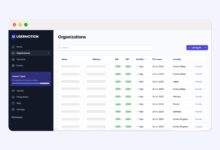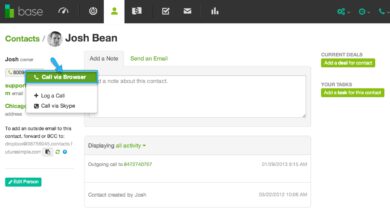Cloud Based CRM App: 7 Powerful Benefits You Can’t Ignore
In today’s fast-paced digital world, a cloud based CRM app isn’t just a luxury—it’s a necessity. Discover how this game-changing tool can transform your customer relationships and skyrocket your business efficiency.
What Is a Cloud Based CRM App?

A cloud based CRM app is a customer relationship management system hosted on remote servers and accessed via the internet. Unlike traditional on-premise CRM software, it eliminates the need for physical hardware, offering businesses a scalable, cost-effective, and flexible solution for managing customer interactions, sales pipelines, and marketing campaigns.
How It Differs From On-Premise CRM
Traditional CRM systems require companies to install and maintain software on local servers. This involves high upfront costs, complex IT infrastructure, and ongoing maintenance. In contrast, a cloud based CRM app operates on a subscription model, where the service provider manages updates, security, and data storage.
- Lower initial investment
- No need for in-house IT staff to manage servers
- Automatic software updates
According to Gartner, over 80% of new CRM deployments in 2023 were cloud-based, highlighting a clear industry shift.
Core Components of a Cloud CRM System
A typical cloud based CRM app includes several integrated modules designed to streamline business operations:
- Sales Automation: Tracks leads, manages pipelines, and automates follow-ups.
- Marketing Automation: Enables targeted email campaigns, lead scoring, and campaign analytics.
- Customer Service & Support: Offers ticketing systems, knowledge bases, and live chat integration.
- Analytics & Reporting: Provides real-time dashboards and performance metrics.
“The cloud has democratized access to enterprise-grade CRM tools, allowing even small startups to compete with industry giants.” — Forbes Technology Council
Top 7 Benefits of Using a Cloud Based CRM App
Adopting a cloud based CRM app brings transformative advantages across departments. From boosting sales productivity to enhancing customer satisfaction, the benefits are both measurable and strategic.
1. Cost Efficiency and Predictable Spending
One of the most compelling reasons businesses switch to a cloud based CRM app is cost savings. There’s no need to purchase expensive servers or hire dedicated IT personnel for maintenance.
- Pay-as-you-go pricing models reduce financial risk
- No hidden costs for software upgrades or patches
- Scalable plans that grow with your business
For example, Salesforce Sales Cloud offers tiered pricing starting at $25/user/month, making it accessible for small teams while still serving large enterprises.
2. Accessibility and Remote Work Enablement
With employees working from different locations, having a centralized system accessible from anywhere is crucial. A cloud based CRM app allows users to log in from any device with an internet connection—laptop, tablet, or smartphone.
- Real-time data access from global offices
- Seamless collaboration between sales, marketing, and support teams
- Offline mode capabilities in some platforms (e.g., HubSpot, Zoho)
This flexibility became especially vital during the pandemic, where companies relying on cloud CRM systems maintained operations with minimal disruption.
3. Rapid Deployment and Easy Setup
Unlike legacy systems that can take months to deploy, a cloud based CRM app can be up and running in days or even hours. Most providers offer intuitive onboarding wizards, pre-built templates, and guided setup processes.
- No complex installation procedures
- Integration with existing tools like email, calendars, and e-commerce platforms
- Customizable dashboards without coding knowledge
Platforms like Zoho CRM provide AI-powered assistants (Zia) to help users configure workflows and automate repetitive tasks during setup.
4. Automatic Updates and Innovation
Software updates are handled automatically by the vendor, ensuring that all users have access to the latest features, security patches, and compliance standards without downtime or manual intervention.
- Frequent feature rollouts based on user feedback
- Continuous improvements in AI, machine learning, and automation
- Regulatory compliance (e.g., GDPR, CCPA) built into the platform
This means your team always operates with cutting-edge technology, giving you a competitive edge.
5. Scalability for Business Growth
As your business grows, so do your CRM needs. A cloud based CRM app scales effortlessly—whether you’re adding new users, expanding into new markets, or integrating additional modules like CPQ or field service.
- Add or remove users with a few clicks
- Upgrade plans based on feature requirements
- Support for multi-language and multi-currency operations
This elasticity makes cloud CRM ideal for startups aiming for rapid expansion and enterprises managing complex global operations.
6. Enhanced Data Security and Backup
Contrary to common misconceptions, cloud CRM platforms often provide superior security compared to on-premise solutions. Providers invest heavily in encryption, identity management, and threat detection.
- End-to-end data encryption (in transit and at rest)
- Regular automated backups and disaster recovery protocols
- Compliance with ISO 27001, SOC 2, and other international standards
For instance, Microsoft Dynamics 365 leverages Azure’s robust security infrastructure to protect customer data across regions.
7. Seamless Integration with Other Business Tools
A cloud based CRM app doesn’t exist in isolation. It connects with email clients, social media, accounting software, e-commerce platforms, and productivity suites to create a unified ecosystem.
- Native integrations with Gmail, Outlook, Slack, and Microsoft Teams
- API access for custom integrations with ERP or legacy systems
- Marketplaces like AppExchange (Salesforce) offering thousands of third-party apps
These integrations eliminate data silos and ensure that customer information flows smoothly across departments.
Key Features to Look for in a Cloud Based CRM App
Not all cloud CRM solutions are created equal. To get the most value, focus on platforms that offer advanced functionality tailored to your business goals.
Contact and Lead Management
At the heart of any CRM is the ability to store, organize, and track customer information. A good cloud based CRM app should allow you to:
- Import contacts from multiple sources (email, social media, web forms)
- Segment leads based on behavior, demographics, or lifecycle stage
- Duplicate detection to maintain data cleanliness
Tools like Pipedrive excel in visual pipeline management, helping sales teams prioritize high-value opportunities.
Automation and Workflow Tools
Manual data entry and repetitive tasks eat up valuable time. Automation features in a cloud based CRM app can handle routine activities such as:
- Scheduling follow-up emails
- Assigning tasks to team members
- Updating deal stages based on customer actions
HubSpot’s workflow automation, for example, allows marketers to trigger personalized email sequences when a lead downloads a whitepaper.
AI-Powered Insights and Predictive Analytics
Modern cloud CRM platforms use artificial intelligence to analyze patterns and predict outcomes. These insights help teams make smarter decisions faster.
- Forecasting sales revenue based on historical trends
- Identifying at-risk customers before churn occurs
- Recommending next-best actions for sales reps
Salesforce Einstein AI is a leader in this space, offering predictive lead scoring and sentiment analysis on customer communications.
Top Cloud Based CRM Apps in 2024
The market is flooded with options, but only a few stand out in terms of reliability, functionality, and user experience. Here are the top contenders.
Salesforce Sales Cloud
Widely regarded as the gold standard, Salesforce offers a comprehensive cloud based CRM app with unmatched scalability and customization.
- Over 150,000+ customers worldwide
- Extensive app ecosystem via AppExchange
- Strong AI and analytics capabilities
Best for: Medium to large enterprises needing deep customization and global support.
HubSpot CRM
Known for its user-friendly interface and free tier, HubSpot is ideal for startups and small businesses.
- Free plan includes contact management, email tracking, and deal pipelines
- Seamless integration with marketing, sales, and service hubs
- Excellent onboarding and educational resources
Best for: SMBs focused on inbound marketing and customer engagement.
Zoho CRM
Zoho offers a powerful yet affordable cloud based CRM app with strong automation and AI features.
- AI assistant (Zia) for voice commands and predictive forecasting
- Multi-channel communication (email, phone, social, chat)
- Highly customizable for niche industries
Best for: Growing businesses looking for a balance between price and functionality.
How to Choose the Right Cloud Based CRM App for Your Business
Selecting the right platform requires careful evaluation of your business needs, team size, budget, and long-term goals.
Assess Your Business Needs
Start by identifying what you want to achieve with your CRM:
- Improve lead conversion rates?
- Enhance customer support response times?
- Automate marketing campaigns?
Map these objectives to specific CRM features before comparing vendors.
Evaluate User Experience and Training Requirements
Even the most powerful CRM will fail if your team doesn’t adopt it. Look for platforms with:
- Intuitive interfaces
- Mobile app availability
- Comprehensive training materials and customer support
Consider conducting a pilot test with a small group of users to gauge usability.
Check Integration Capabilities
Your CRM should work seamlessly with tools you already use—like Google Workspace, QuickBooks, Shopify, or Mailchimp.
- Verify native integrations
- Test API connectivity if building custom workflows
- Ensure data sync accuracy across platforms
Integration strength directly impacts data accuracy and operational efficiency.
Common Challenges and How to Overcome Them
While cloud based CRM apps offer immense benefits, implementation isn’t always smooth. Awareness of potential pitfalls helps ensure success.
Data Migration Issues
Transferring data from spreadsheets or legacy systems can lead to duplicates, formatting errors, or missing fields.
- Use CSV import tools with validation checks
- Clean data before migration (remove outdated entries)
- Leverage vendor migration services or consultants
Tip: Start with a phased rollout—migrate one department at a time.
User Adoption Resistance
Employees may resist change due to fear of complexity or perceived loss of control.
- Involve users early in the selection process
- Provide hands-on training and ongoing support
- Highlight personal benefits (e.g., reduced admin work)
According to Nucleus Research, companies with strong user adoption see 3x higher ROI from their CRM investments.
Customization vs. Simplicity Trade-Off
Too much customization can lead to system bloat and maintenance headaches.
- Stick to essential custom fields and workflows
- Use out-of-the-box features whenever possible
- Document all changes for future reference
Remember: Simplicity often leads to better long-term usability.
Future Trends Shaping Cloud Based CRM Apps
The CRM landscape is evolving rapidly, driven by advancements in AI, mobile technology, and customer expectations.
AI and Hyper-Personalization
Future cloud based CRM apps will leverage AI to deliver hyper-personalized experiences at scale.
- Dynamic content recommendations based on browsing behavior
- Real-time chatbot assistance with natural language understanding
- Predictive customer journey mapping
Companies like Oracle are already embedding generative AI into their CRM platforms to draft emails and summarize customer interactions.
Mobile-First CRM Design
With more sales reps working remotely, mobile functionality is no longer optional.
- Offline access to critical data
- Voice-to-text note entry during client meetings
- Location-based task reminders
Expect CRM vendors to prioritize mobile UX in upcoming releases.
Increased Focus on Customer Data Platforms (CDP)
CRM systems are merging with CDPs to unify customer data from multiple touchpoints—web, app, social, IoT.
- Single customer view across channels
- Real-time data activation for marketing
- Improved consent and privacy management
This convergence enables deeper insights and more effective engagement strategies.
What is a cloud based CRM app?
A cloud based CRM app is a software solution hosted on remote servers that helps businesses manage customer relationships, sales, marketing, and support activities through an internet-connected interface. It eliminates the need for local installations and offers scalability, security, and remote access.
Is a cloud CRM safe for sensitive customer data?
Yes, reputable cloud based CRM apps use advanced encryption, regular security audits, and compliance certifications (like GDPR and SOC 2) to protect data. In many cases, they are more secure than on-premise systems managed internally.
Can small businesses benefit from a cloud based CRM app?
Absolutely. Cloud CRM platforms like HubSpot and Zoho offer affordable, scalable plans tailored for small businesses. They reduce IT overhead and provide enterprise-level tools at a fraction of the cost.
How much does a cloud based CRM app cost?
Prices vary by provider and features. Entry-level plans start as low as $10–$25 per user per month (e.g., HubSpot, Zoho), while enterprise solutions like Salesforce can exceed $300/user/month. Many offer free tiers with basic functionality.
Do cloud CRM systems work offline?
Some platforms, including Zoho CRM and Salesforce Mobile, offer limited offline functionality. Users can view records, update fields, and sync data once reconnected to the internet, ensuring productivity on the go.
Adopting a cloud based CRM app is one of the smartest moves a modern business can make. From slashing costs and boosting productivity to enabling remote collaboration and delivering personalized customer experiences, the advantages are undeniable. As technology continues to evolve, these platforms will become even more intelligent, intuitive, and integral to business success. Whether you’re a solopreneur or leading a multinational corporation, there’s a cloud CRM solution designed to meet your needs. The key is to evaluate your goals, involve your team, and choose a platform that grows with you. The future of customer relationship management is in the cloud—and it’s already here.
Further Reading:







